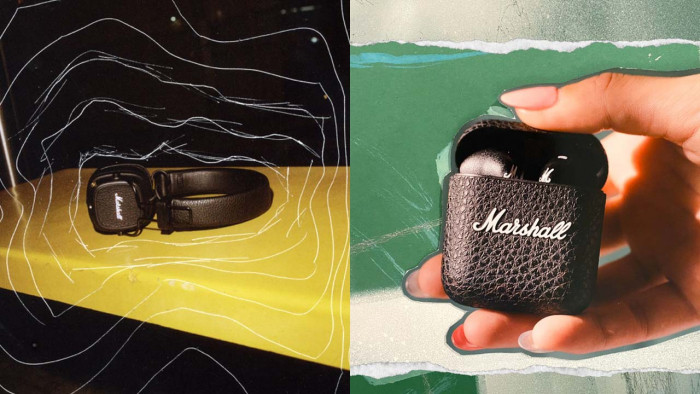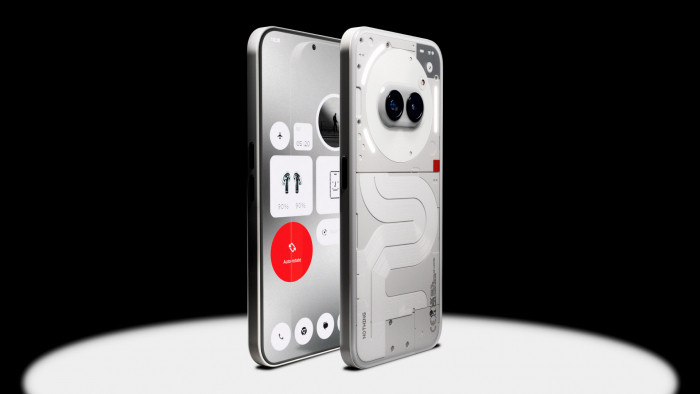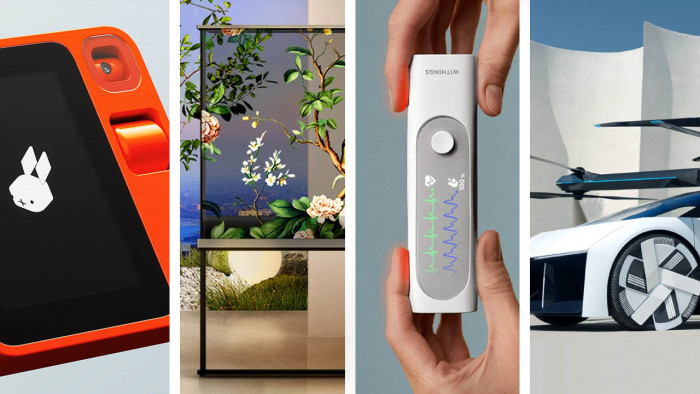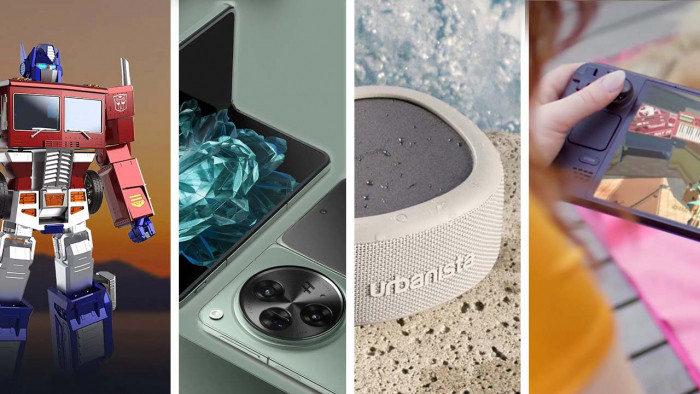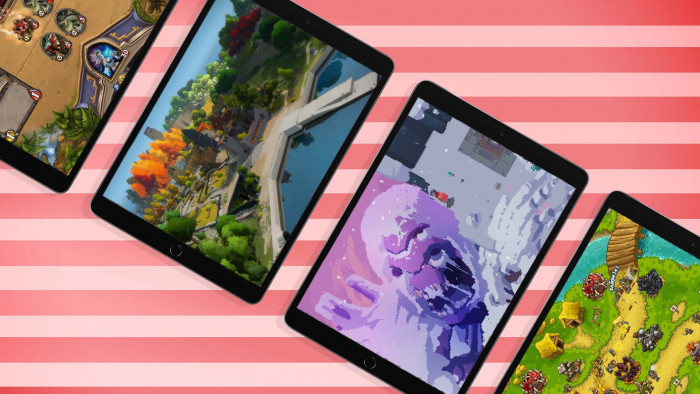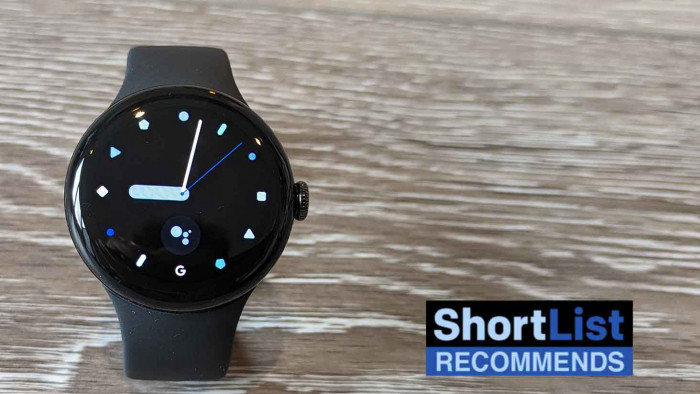We asked tech experts how we're going to solve the biggest problems in transport, the home & entertainment
Predicting gadgetry that goes beyond Alexas, iPhones and smart toasters


Philosopher Slavoj Zizek on the big digital questions of the age
iPhones: how do they change our mode of thinking? It’s more and more that instead of serious thinking you are engaged in these quick exchanges and so on. If I were to be in power, [I would] prohibit Facebook and Twitter – out, out, out. If you are caught using more than ten minutes a day of Facebook, every day for two hours you have to clean, for free, hospitals, toilets, and so on.
Let’s not forget, technology is not neutral. Forget about politics; who controls the digital grid network? I trust none of them. Concerning the future, I only trust Hollywood. People should be as fully informed as possible about all the ways they are controlled. Many people don’t want to know. Everything is mediated by the digital network – not only information but the distribution of food, electricity… This is why it’s so important, I think, to prevent the state from controlling it fully.
What fascinates me is the direct link between our brain and digital networks. This, I think, justifies the term ‘post-human’. What identifies our subjective self-experience is this basic form of freedom – I’m here, you are there. You can torture my body but in some sense I think what I want: I think you are a dirty jerk, I hate you – you don’t know it. The really scary thing is the following: they attach a rat to a digital machine and it controls their neural impulses towards movement. You have a rat freely jumping around; you press a button, the rat basically changes into a remote-controlled car. They are of course repeating this on humans. It’s still primitive but they are making progress. I can be perfectly controlled without even being aware.
The dream is of immortality: the idea is to change our identity from hardware to software. We live in a wonderful era, where philosophical questions are no longer abstract questions but they are questions that you have to confront every day. Like with the bio-genetic steering of our brains – the question is, are we free or not?
If some kind of artificial intelligence will emerge, with some kind of self-awareness, there is no reason for panic. Isn’t the fear of robots a weird proof of how perverted we are today? Robots are wonderful news – we will have to work less!
Like A Thief In Broad Daylight (Allen Lane) is out now
Public Transport

The Problem
Once a year or so, newspapers will publish the shocking results of a study into how dirty train seats are. One conducted in 2016 found that chairs swabbed on a Northern Line train contained more bacteria than your average toilet seat. People invariably read these reports on their morning commute, recoiling at the awful realisation they’re locked inside a depressing tin can, surrounded by human filth, hurtling through subterranean London like a monstrous, poo-caked metal worm. Blinded by wage-slavery, they’ve temporarily forgotten, and shall again tomorrow, that actually all transport is a disgusting nightmare had in the bowels of hell. We only don’t remember so that we leave the house.
Take air travel. Air travel is an accurate simulation of abduction. Physics has it that planes of any size can fly, and yet we’re forced into closer proximity with strangers on flights than our parents manage in bed. Long-haul flying is such a profoundly invasive experience, I’m always amazed to discover it’s not one of extraordinary rendition when we don’t land in Guantanamo Bay.
Maybe it’s the food. In a world where toddlers eat microwavable 5-a-day ready meals of near-restaurant quality, should we not endeavour for sky-bound culinary experiences beyond cheese that tastes like it emerged from an arse?
Why, when metals exist that can only be destroyed if fired into the heat of the sun, do we travel in cars made from thin strips of steel and glass you could damage with a hammer, let alone crush beneath the wheels of a truck? It’s like opting to base jump with a kite rather than a parachute. Is it because the road-bound alternatives, British buses and coaches, are so aesthetically depressing, and so antithetical to human comfort, that a decent case can be made for scrapping public transport altogether and embracing climate change, apocalyptic drawbacks and all?
Travel is glamorous and enriching. But must it be done in so bleak a vessel, eating spongy egg, squeezed between two idiots, on a chair less pleasant than a toilet? Are we not better than this?
David Whitehouse
The solution
Applied futurist Tom Cheesewright on all the ways that going from A to B might be about to change
Too fast, too dangerous
“There are hard physical limits on what is comfortable for acceleration and deceleration – we’re not all astronauts with flight suits and high G tolerances. With things like the Hyperloop: their top speed is appealing but over short hops they would always be speeding up and slowing down. And if you brake too hard, everyone’s going to get bruises or fall unconscious. For longer distances there’s a chance we could reduce times by getting to and staying at higher speeds. We could do this with aircraft, trains, or cars with new engine technologies, and reduced weight through advanced materials, combined with robotic control to keep us safe. We can also increase utilisation of transport routes like this: in theory, we could have more trains on the rails because they will be lighter – so less damaging to the rails – quieter, and able to travel closer together.”
Plane food
“It’s really hard to get a variety of textures when you’re reheating food or keeping it warm for a long time. Everything softens. The answer is in high-tech packaging that can cook the food inside it in different ways. One package might bake a roll to be warm and fluffy but crispy on the outside, another might fry a piece of meat to give it a good crust. Nano-composite materials might give us just these properties, and allow us to embed sensors to ensure everything in the packaging has been cooked to the right temperature.”
Safety first
“We will look back on the current age of travel as utterly uncivilised. In just a few decades the idea that we would let as many people die on the roads as we do now will be unthinkable. The next generation of materials technology will change the way the world looks, just as the digital revolution has changed the way it works. Graphene and other single-layer materials have incredible properties that can be combined to make things that are lighter and stiffer than ever before. When there are accidents - be it cars, planes, or bicycles - fewer and fewer people will be injured or killed. But there won’t be as many accidents in the first place. Human error is the overwhelming cause of car accidents, responsible for more than 90%. Eliminate that and we will all be much safer. Autonomous vehicles will still have accidents, and that is going to be tough to deal with. But they will save many, many more lives than they cost.”
Future perfect?
“My ideal journey is one without friction, where I roll seamlessly between modes of transport without delay. And ideally, where I have to take the minimum amount of luggage with me. Imagine a world of abundant, clean energy, on-demand production, and hyper-efficient recycling. A self-driving car picks you up from home, whisks you to the airport, where you walk straight onto the plane: security scans you as you walk there. There’s no need for luggage: you just print what you need at your destination. You’d never have to trip over someone’s roll-along case again.”
Entertainment

The problem
Despite being a godawful millennial, I still remember a simpler time, when mobile phones were the frivolous luxury of stockbrokers, and the ‘internet’ was what you called the material hanging from the blue half of Milan’s goalposts.
Music was trapped on CDs that cost as much as a monthly streaming subscription, or doled out at the whim of radio DJs. You either needed to have a clued-up pal or fork out for a film magazine to discover cult movies. Must-watch telly had to be found in the listings, and if you missed it, that was it.
You went about your life entertaining yourself one activity at a time. If you fancied reading a book, you’d pick something from the shelves, and go at it. If it sucked, oh well, better luck next time. Sometimes bad entertainment would even serve as a useful reminder that there were better things to be doing with your time, like going outside.
Nowadays you carry around an entire library of everything in your pocket. Every time you try and entertain yourself, your library taunts you. ‘Why have you picked that?’ It says. ‘You still haven’t caught up on all the very important prestige dramas everyone’s talking about, or read every Pulitzer winner from the last century like you set out to in your New Year’s resolutions, or even seen Blade Runner yet.’
When everything is available at once, anything you pick is accompanied by acute fear and guilt that you might not be optimising your finite time for entertainment, that there could be something better out there, and you’re wasting your time on this. It’s paralysing. You scroll for hours, and still you’ve picked nothing, because you haven’t found the perfect thing yet.
And because you’re stuck scrolling forever, you don’t have time to catch up on all the new things being released, or whether and why you should be consuming them all. And then when you finally pick something, you might not even enjoy it. Maybe you’re not in the right mood, or it’s just not for you. Disaster.
‘Um, ain’tcha heard of algorithms? They learn what you like, and generate suggestions!’ The current algorithms just direct you to things you’ve already liked. Listened to Bicep once? Congratulations your Spotify ‘Discover Weekly’ is now populated by house music that sounds exactly like Bicep. This is the entire spectrum of your taste now
Basically, what I want is for someone to invent tech that will work out my taste and mood exactly, and to serve up entertainment for me so I don’t have to decide, but only stuff I’m guaranteed to like, and also, somehow, stuff I don’t know I like yet.
Tristan Cross
The solution
Futurist Dr Ian Pearson on solving the very serious challenge of knowing what to watch
Real brainpower
“We need to get away from algorithmic thinking and get into neural networks to do the kind of artificial intelligence that can do this properly. Algorithms are just an advanced version of what’s known as a ‘lookup table’ - it’s like you’re running through a library and something’s just telling you which set of shelves to look at. It’s good for filtering things by keyword, but it’s not intelligent in any real way.
Emotional content
“We need AI that is conscious and sentient. If you want to start emulating people with emotions, we don’t require computers with simulated emotions but ones with genuine emotions and self-awareness. We’ve known about neural networks, which are basically models of brains that need to be trained over time, since the 1960s, but we’re just now getting the computational power to make them work – that’ll be what lets a computer work out exactly what it is you like about, say, the emotional content of a piece of music, and find you things you didn’t know you wanted. Progress is slow right now because a lot of companies are still thinking in terms of algorithms and we need better biomimetic architectures, but you’re going to see some leaps soon.”
Everyone gets an agent
“AI is fast approaching the point where it’s genuinely able to hold a conversation. We’ll soon be at the point where you’ll be able to say ‘I fancy a nice weekend away in a country lodge somewhere,’ and Alexa or Siri will know what you’re looking for - it’ll have access to your diary and your emails, and it’ll know your typical budget. It’s getting towards being what we call an ‘agent’, where you can delegate tasks to the AI. It’ll know so much about you that it can act on your behalf.”
You are Iron Man
“We’re not too far from the sort of AI seen in
The Home

The problem
Home is where the heart is, or so a Mortgage advisor recently told me, between cackles, as he leafed through the files of my fluctuating income. Arty, millennial scourge like myself are now fully aware that we may never own bricks and mortar, so it’s about time technology snatched back a bit of property power for us all. The recent raft of so called “Smart Home” companies are doing just this; making the idea of owning a computerised home affordable to more of us than just James Bond villains or Gary Barlow. Even the rotten core of my own outdated smartphone has the capacity to remotely switch on a bulb, whilst simultaneously soothing my cats “anxiety issues” with Brian Eno’s back catalogue. The real question is, however - are the tech lords truly getting to grips with the nitty gritty of everyday, domestic life?
Digitalisation may be able to nudge a thermostat depending on cloud cover, but can it rid the fridge of last weeks wilted, unopened salad bags, or find use for that half tin of oxidised chopped tomatoes?
If i’m not struggling with a rancid fridge, then I am doing everything in my power to keep the bedsheet hooked over the mattress corner. Most nights I end up leaping up and down on all fours, sheet in hand, like some kind of weary, naked toad. Naturally, this is dependent on whether or not the sheets themselves are dry, having been piled on the belligerently undersized radiator. Don’t get me started on why the washing machine has to be laboriously primed with each wash, as opposed to preloaded with enough juice to last the month? If I can’t even wash clothes hassle free, then what chance do I have of washing my own self; With space becoming rare and expensive, most modern bathroom’s now lack their namesake…A bath. In my flat, we have a single, lime-scaled shower with water pressure so low it’s like being pissed on by a middle-aged giant.
In strange political times such as these, it’s likely our futures will be spent permanently barricaded in the home, burrowing deep into the Netflix womb. Its time technology upped it’s game, in order to ease our downfall.
Jonnie Bayfield
The solution
Alexandra Whittington, of the University of Houston’s College of Technology, on our transforming living space
Waste not
“Future appliances will know our needs and anticipate them regularly. A futuristic smart appliance is likely to run on two major technologies: artificial intelligence and the Internet of Things. AI would give it the ability to learn information about us— such as whether we are trying to lose weight or eat healthy — and then make decisions based on those conditions. Everything from your toaster to your coffee-pot will be able to communicate information about its surroundings, specifically, us. In the case of the home, this would mean everyone in the household is being observed.”
Keeping it clean
“To be honest, I’m not aware of any futuristic shower options, but I’d point out that antimicrobial fabrics in the home and used as clothing could have a huge impact on the concept of daily hygiene, and whether we need to bathe or not. We also need to think about other forces, including environmental pressures, that might mean we need to develop ways of washing without water.”
Load and leave
“This one’s good news: smart appliances could create a laundry system where the only task for the human user is to preload the washer with enough detergent that machine can dispense it according to its own judgement. Every object will have the ability to communicate information about itself to other objects – so, theoretically, your dirty clothes could notify the washing machine about exactly how many hours they were worn and transmit washing instructions.”
Grow (well, print) your own
Historically, people have mostly produced everything they needed—clothing, soap, housewares, textiles—within the home. It’s only relatively recently that we’ve gone outside to buy most of the things we need to live. Interestingly, technologies that are now becoming common could put the household into a ‘producer’ mode again. For example, 3D printed items are coming down in price and gaining popularity. If this technology permeates like it could, you could print toys, shoes, even furniture for your own home – there are already people living in 3D printed houses. There may actually be a future risk of overproduction of 3D printed goods in the future, in parallel to the trend of overconsumption trend that has characterized much of the last few decades of consumer behavior. It comes back to the question of sustainability and how much ‘stuff’ people actually need.’
Technology

The problem
Hello. Why is the laptop not built into my head, yet? Why am I typing this – with my hands
If you’re not comfortable having a MacBook injected bodily into your temple, then at least ask for fewer cables. I am completely surrounded by them, currently. I sleep in a bed made of them (phone charger, laptop charger, e-book charger, the cable for my alarm clock, which is also a radio) and it feels like writhing in a pit of dark snakes. Sometimes I hunch and squat in the corner at a party, desperately charging my phone in the blue pulsing light of other people’s fun, and I wonder whether it is me who is degrading the planet: all those gigantic mechanisms of energy, those fossil fuels being burned and converted at massive concrete stations into power, fired thousands of miles down intricate copper cables here, through a wall, into my hand so I can check Twitter. There is guilt attached, to that. I would not have to think about it if my phone just charged itself from the air.
We’ve lived 20 years with phone technology now and I still get texts and calls from people I don’t like, which is completely deranged. My phone can track my heartbeat, my fingerprint and how many steps I walk per day: surely it can intercept a call for me or type “Oh wow! Just saw this!” to a text I’ve been ignoring for days. Live my social life for me, phone! I’m tired of doing it myself!
While I’m on it: videogames. Still not real enough. Driving a car into the sea still feels hollow and false. Social media: needs to be a separate one for news and a separate one for arguing. Roombas: we’ve had Roomba floor vacs for years and yet they are still the only commercially available domestic robot! Why are there not an army of robots quietly cleaning my house! Come the f*ck on, technology! Advance more!
Joel Golby
The solution
Richard Watson, editor of online magazine What’s Next, on the way technology will
No more wires
“Wireless power isn’t widespread yet, but it’s coming. Obviously, there are already charging panels for phones, and you can actually use the same tech with an electric car now, by parking it over a plate to charge. The next step from that is the ‘broadcasting’ of electricity - they’ve done it with drones, outfitting them with coils that receive electromagnetic waves from a charging point on the ground. It’s probably going to get worse before it gets better, though, as we become increasingly power-hungry and every company wants to charge for their own cables.”
Thinking out loud
“Brain-computer interfaces are technically possible – we’ve had thought-controlled computer cursors and wheelchairs for a while now, but the downside at the moment is that you have to surgically implant electrodes in your head to make it work. Thought control of machines is definitely the next big area, but then we get into some tricky areas - you could be brain-jacked, somebody could steal your thoughts, and mental privacy becomes a big thing.”
Guilt-free power
“Solar energy was a game changer – the development of transparent panels could be amazing, since every window in the world could theoretically be a solar panel. Apart from that, there are lots of little technologies that are going to add up to big power savings - we’ve got technology that ‘harvests’ energy from the vibration of people walking on pavements, and there’s a lady called Charlotte Slingsby working on these curtains that hang in the Crossrail tunnel, where wind or a train passing through them generates electricity.”
Robot Reboot
“We’ve already got robots that can do one thing phenomenally well, but the idea of ‘generally’ useful robots like the ones from
(Interviews: Ralph Jones, Joel Snape)
(3D artwork: Yippehey, Photography: Matthew Beedle, Illustrations: Josh Holinaty)
